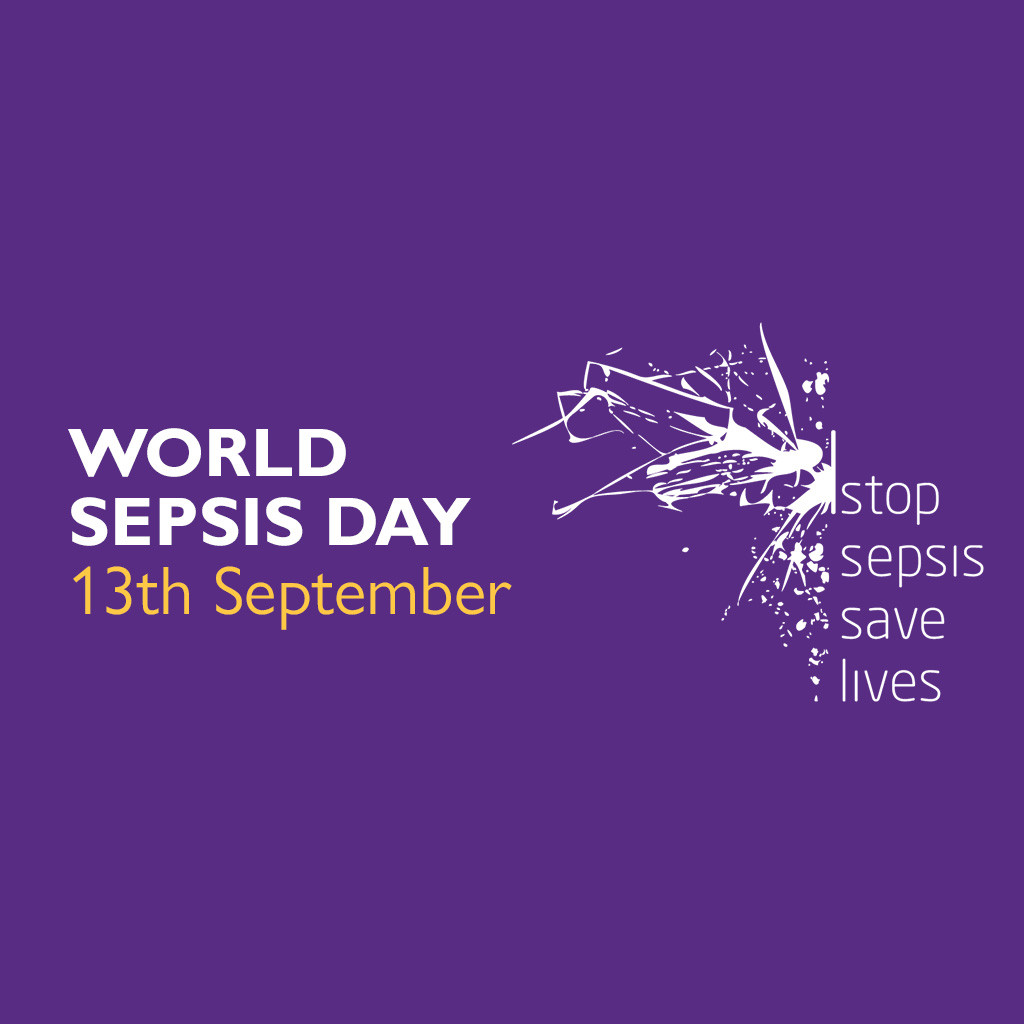World Sepsis Day is held on 13 September 2023 aiming to raise awareness of the signs and symptoms of this devastating illness. This global awareness campaign aims to reduce the 11 million deaths worldwide each year.
What is sepsis?
Sepsis is a life-threatening condition on the background of an infection, which overwhelms the tissues and organs in the body.
Whilst sepsis always starts with an infection of any degree, from a UTI to a chest infection, it is not known why some people can fight the infection, whereas others develop sepsis which can lead to organ failure and death, or lifelong effects.
It is estimated that around 245,000 people in the UK are affected by sepsis each year, with a least 48,000 deaths from a sepsis-related illness.
Nearly 80,000, or 40%, of survivors suffer life-changing injuries, both physically, cognitively, or psychologically each year and around 1% of survivors suffer an amputation.
Sadly, patients who survive sepsis are at a higher risk of dying for up to five years after their initial illness, according to research led by Guys’ and St Thomas’ NHS Foundation Trust.
What are the signs and symptoms of sepsis?
The signs and symptoms of sepsis differ between adults, children and babies.
Around 2,000 children a year develop sepsis in the UK, so what are the signs to help you identify if your child may be developing the condition:
- Fast breathing;
- Fitting;
- Skin is mottled, pale or bluish;
- A rash that does not fade when pressed;
- Sleepy or difficult to wake;
- Cold to touch.
For children under the age of 5 years old, signs of sepsis are:
- Not feeding;
- Uncontrolled vomiting;
- Not passing urine.
Identifying these red flags early is essential, as both a parent and a doctor or nurse.
In adults, the signs of sepsis are:
- Confusion or slurred speech;
- Muscle pain and extreme shivering;
- Not passing urine;
- Breathlessness;
- Skin is mottled or discoloured;
- Feeling like you may die.
The quicker early signs of sepsis are spotted and treated, the more likely you are to have a more positive outcome.
What is “Martha’s Rule”?
The Health Secretary, Steve Barclay, recently confirmed that he is exploring the plea of the bereaved parents of Martha, to help patients to obtain an urgent second opinion in the hospital.
We act for a large number of clients affected by a delay in diagnosis of sepsis, and there is such a sense of logic that two heads are better than one.
Martha’s parents have been raising awareness after the inquest into Martha’s death confirmed that she could have survived with better care at King’s College Hospital, London.
The recent BBC News article explained Martha’s tragic story. Martha and her family were on a cycle ride during their holiday in Wales in 2021. Martha slipped onto the handlebars of her bike, with her abdomen having taken the full brunt of the fall.
Martha was taken to hospital where it was found that she had injured her pancreas causing significant damage. She later developed sepsis, and whilst her parents advocated for Martha, her mum explained that they were not listened to by senior doctors. She explained that they were “not given the full picture” about Martha’s deteriorating condition.
Martha’s mum explained that there were worrying signs of sepsis, such as a rash which was mistaken as an allergic reaction, and it was only after Martha had a fit that she was eventually transferred to Intensive Care.
Whilst the Hospital Trust has admitted that mistakes were made, that does not of course bring Martha back. Her mum told BBC Four:
“The thing I find most unforgivable, is that they left her so long, she knew she was going to die. She lay in bed, and she said to me it feels like it’s unfixable”.
An awareness of her likely death must have been truly terrifying for 13-year-old Martha, and devastatingly traumatic for her family to watch. Martha’s mum explained that by that point, it was too late for them to do anything, and the following day, Martha tragically and avoidably lost her life.
Despite their grief for Martha, her parents are determined to prevent this happening to another family, and wish to bring in “Martha’s rule”, which would give parents, carers, and patients the right to call for an urgent second clinical opinion from other experts at the same hospital if they have concerns about their current care.
Mr Barclay told the House of Commons that he had now asked colleagues to explore the idea. We hope that this change is brought in, to prevent avoidable deaths and to ensure everyone has a greater understanding of the signs and symptoms of sepsis.
How we can help
If you or a family member have been affected by sepsis, contact our specialist medical negligence lawyers, we will help you to recover appropriate compensation and secure your future.






